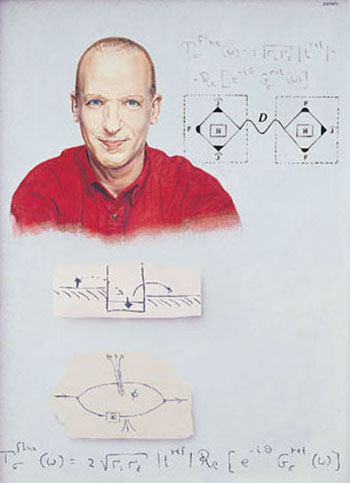Are you a journalist? Please sign up here for our press releases
Subscribe to our monthly newsletter:

In 1897, a group of Cambridge University scientists threw a party to celebrate the discovery of a subatomic particle. “May it never be of use to anybody,” teased a colleague as he toasted its discoverer, Sir John Joseph Thompson. The particle was none other than the electron, which has driven the world economy for decades,and without which modern living would behard to imagine.
Electrons, it became apparent, are the particles that carry electric charge and whose movement results in an electric current, the industrial world's fountain of life. Gradually, it would also become apparent that, like other particles, the electron is both a particle and a wave; its dual personality is one of the phenomena described by quantum theory. Electrons are also characterized by their “spin.” One may think of spin as the rotation of a top – it can rotate clockwise or counterclockwise, and correspondingly the spin may be positive or negative. Prof. Yuval Gefen of the Condensed Matter Physics Department is researching ways to advance our knowledge and develop technologies in a new field called “spintronics.”
Gefen says, “In electronics, if two groups of electrons were to exchange places, nothing would happen as far as their net electric charge is concerned. However, the spin balance might change. This change is the basis for this new field.” Spintronics could be appropriate for the development of quantum computing devices able to perform tasks of which regular computers are incapable. For instance, they might be able to break down into its components a number that is the product of two large prime numbers. This capability has great significance in several fields, including the encryption and decryption of data.